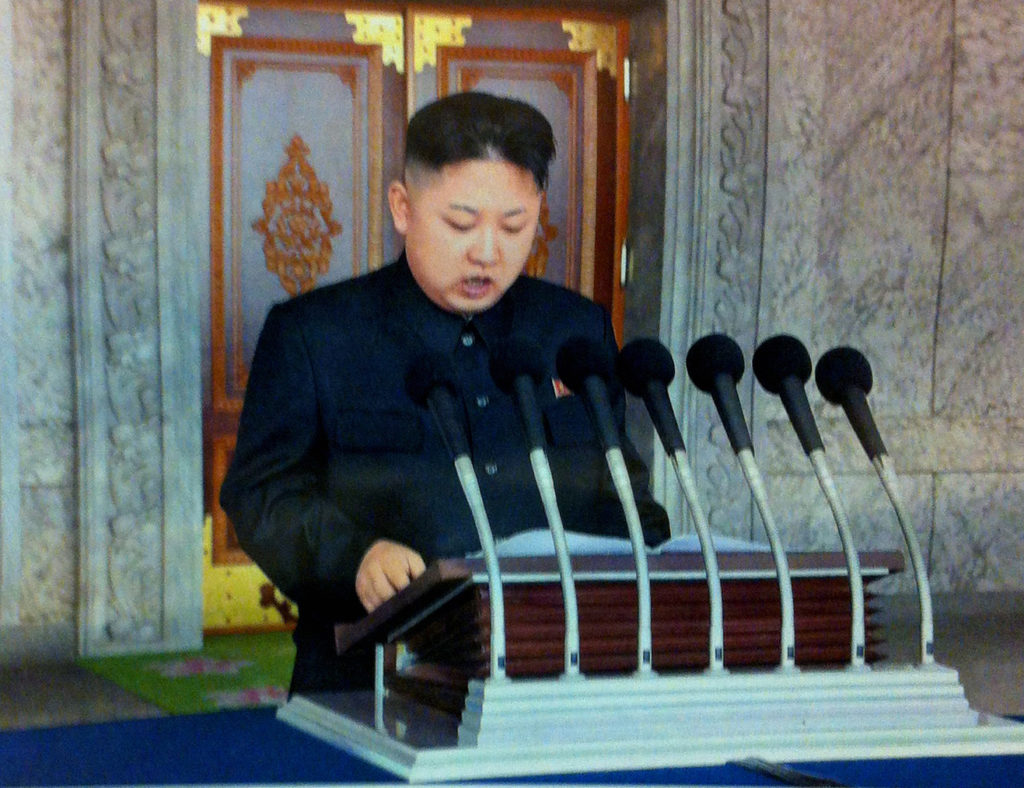The Peninsula
Kim Jong Un’s 2019 New Year’s Speech: An Economic Perspective

By William B. Brown
First, the things that I liked
Overall the tone is good. The business suit and Kim’s bearing suggest an earnest man wanting to get important problems resolved and see progress on major developments that are underway. And his warnings to the United States – the possibility of negative actions if the U.S. government doesn’t reduce sanctions – are pretty mild. One can imagine this speech becoming a liability next year if Kim turns back to, say, nuclear testing and glum times in North Korea continue. Thus the speech augurs well for the future. And he says, pretty explicitly, he wants to de-nuclearize, though not cast in the present tense.
Fixing the economy is clearly task number one. He highlights the April 2018 Party meeting in which he declared that the entire focus of the party and the country should be on economic development (now that nuclear deterrence has been attained).
He doesn’t overexaggerate the country’s actual economic health in 2018, admitting to severe problems in power generation and agriculture. But rather than dwell on the present, the speech points to the future.
On electricity, Kim focuses on the most important installation, Pukchang Thermal Power Plant. Kim draws attention to improvements in efficiency but notes that national power output is below historical peak levels. It’s pretty obvious why: electricity is almost free and, as the money-driven economy expands, a free good is abused both in production and in consumption. But he doesn’t signal price increases, which are essential albeit politically challenging. Instead, small hydro plants and pie-in-the-sky nuclear power are the planned solutions. Even coal supply remains a big concern, despite the stoppage of millions of tons of coal exports. Most likely, miners are not being paid since mines can’t earn hard currency selling to China.
On heavy industry, he focuses on the Kim Chaek Iron and Steel plant, probably the largest industrial plant in the country, but without saying it is doing well—it is probably in horrible condition given the absence of imported coking coals and very little new equipment over decades. But Chongjin, the country’s second largest city, would be in even worse shape if work at the plant is interrupted.
On agriculture, he points to “weather” as the cause of problems in 2018—it always does—and emphasizes the need for chemical fertilizer. Interestingly, he focuses on phosphates which are usually imported.
He notes the need for management improvements, including the financial or money system but without much detail. Hopefully, he will go further into this in the state’s budget meetings next April.
And he gives very little time to the Five-Year Plan, now beginning its important fourth year. This is probably because it is in total disarray. And that’s a good sign, indicating the growing dominance of the market economy.
He also asked the military and its industry to focus on the non-military sectors, also a very good thing.
However, the speech is ultimately disappointing since he gives little indication that reforms are in the works.
The focus is on Juche and self-reliance. This in itself is not bad – everyone wants to be self-reliant. And it gives ammunition to those of us who don’t want to see an expansion of aid programs and projects for North Korea. Aid, in my view, has warped Pyongyang’s incentives, impaired its ability to export, and hindered North Korea becoming a normal part of the world. But Kim always emphasizes the collective “socialist” economic development as North Korea’s distinguishing mark. This may be politically impossible for him to soft-pedal, but it is also preventing him from saying he wants North Korea to be a more normal country, something I think he said to President Trump and is the line I think we should be pushing.
He says almost nothing about the monetary situation, which must be confusing to the public. He doesn’t like corruption but doesn’t give any indication he will raise pay for state employees, who are paid virtually nothing and whose rations are always in jeopardy. Of course, he can’t raise state wages without inviting huge inflation, especially with the drop in imports, unless he radically reforms the country’s finance.
He says almost nothing about property rights—whose land are people building private houses on anyway? And nothing about oil, despite severe sanctions and high prices.
There are many other contradictions. It’s interesting that the debilitating effects of foreign sanctions are only explicitly mentioned in his final summary. This is most likely because he understands the leverage that this open acknowledgment would give to reformists and the U.S. government.
And this is clearly why he focuses on self-reliance. But the absence of any mention of the export industry is conspicuous. No word about textiles, which employs hundreds of thousands of workers. Surely, he doesn’t really believe the country can manage without imports, which relies on textiles and other exports.
Concerns
Clearly, Kim is reaching out to South Korea with high expectations for North-South projects, including at Kaesong and Kumgangsan, as if these can proceed without changes in the sanctions environment and economic reforms that could make them good development projects (for example, direct pay for the workers).
I suggest President Moon take up North Korea’s Juche mantra at face value. Self-reliance means self-support so there should be no aid or subsidy involved. Projects may be possible but only if both sides make money.
I very much liked the editorial from South Korea’s liberal Hankyoreh newspaper, which said it was time for Kim to step up to the plate. Unfortunately, with this speech, Kim is still not at the batter’s box.
William Brown is an Adjunct Professor at the Georgetown University School of Foreign Service and a Non-Resident Fellow at the Korea Economic Institute of America. He is retired from the federal government. The views expressed here are the author’s alone.
Photo from Rodong Sinmun
